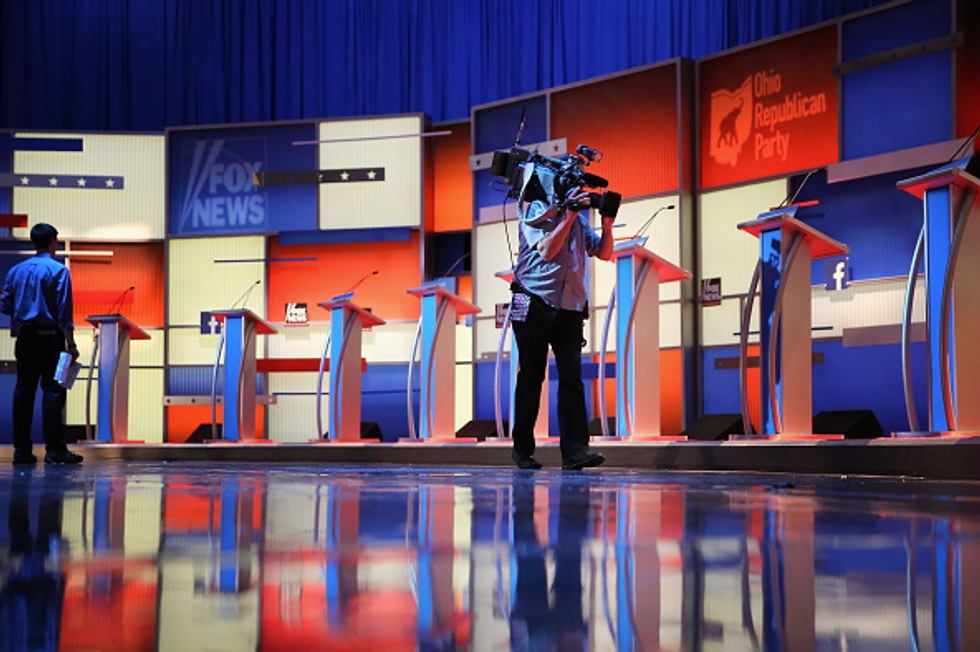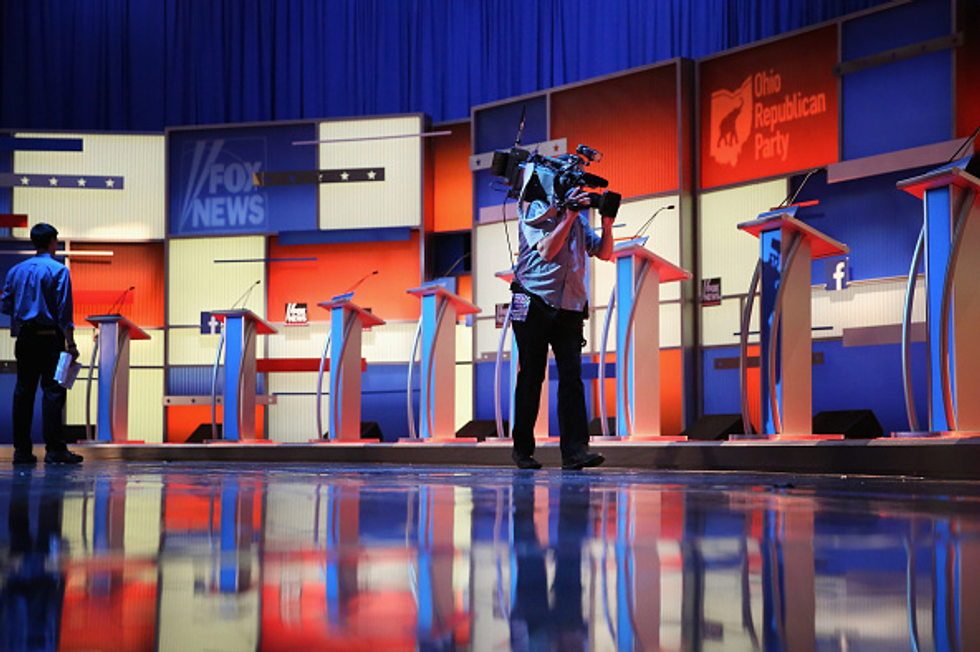
Photo by Chip Somodevilla/Getty Images

Remember that one time (I forget when it was) when the president (I can’t remember which one) – but the president had to deal with an issue of national importance within a minute while standing on stage in front of thousands of people, and he couldn’t call anyone for help or advice?
Me either, because it never happened. Presidents rarely appear on game shows.
So, why do we test our presidential candidates by repeatedly running them through a simulation of a combat situation that never occurs in nature?

When we think “presidential debates,” it’s natural for our mind to wander to the historic Abraham Lincoln-Stephan Douglas debates of 1858, which were actually debates between contenders for an Illinois Senate seat. But the focused debates on slavery were of seminal importance, and the participants faced off again in the 1860 presidential contest (with the electoral result reversed from two years earlier), so I can understand us wanting the politics of today to aspire to that level of gravity.
But, back in the 19th century, literacy and news media were far more scarce, and debates were the only in-depth political coverage some voters were likely to get. More, Lincoln is almost a once-in-a-civilization persona. Given these differences, it’s difficult to see how the debates of today are going match debates of the past.
So why do we hold on to this format?
Last night’s GOP debate was certainly worthwhile, but it was also extraordinarily thin. Did you come away with a deep understanding of each candidate’s position on Iran, Iraq, Russia, entitlement and tax reform, abortion, same-sex marriage, and everything else on our plate? No, and even without 10 people on stage, time constraints in live debates prevent us from getting such breadth and depth of details.
[sharequote align="center"]Can the candidates handle debating like the Founding Fathers?[/sharequote]
Without eliminating live debates, why don’t we supplement them with something more methodical? Something modeled on another influential American debate: the Federalist Papers.
The Federalist Papers were a series of articles – published almost like an academic journal – put out by Founding Fathers Alexander Hamilton, John Jay, and James Madison, advocating for the former colonies to adopt the U.S. Constitution. These essays have had a huge effect on how we understand the Constitution today.
With the Internet, however, we can distribute political essays among the population in a way that the Founding Fathers never could. And the logistics are far easier than putting together a live debate.
So why not provide a forum where, say, every candidate gets a week to submit a 1,000-word essay detailing their position on Social Security, and then another week to submit a response to the other candidates’ positions? Post it on the web, and everybody gets to read and comment on it at their leisure.
“But, how do we know that the candidates will write their own essays? Some will just have a staffer write it for them!”
Absolutely, but that’s what presidents do: They entrust specific jobs – e.g., Secretary of Defense, Treasury Secretary – to different people. With a Federalist-style debate, we get to see how well a candidate delegates.
Granted, there’s a down side: lots of people won’t read position papers, just like many of us (myself included) haven’t read all of the Federalist Papers. To be fair, one reason game show-style debates are popular is because they’re condensed into a format that people can make the time to watch. Many Americans can’t or won’t make the investment to scroll through a slew of, essentially, blog posts.
But a lot of us will. And it will provide another avenue for Americans to judge their candidates, and for candidates to hone their message.
So, how about it, presidential candidates? You can handle haggling like a game show contestant; can you also handle debating like the Founding Fathers?
–
TheBlaze contributor channel supports an open discourse on a range of views. The opinions expressed in this channel are solely those of each individual author.